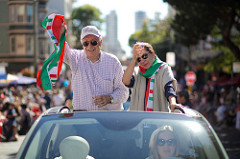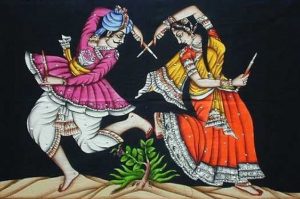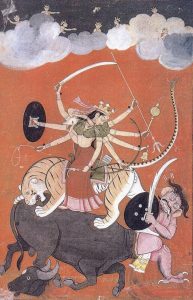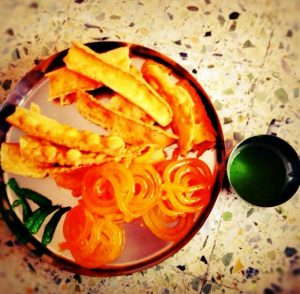This is a new blog series we're doing on religious and cultural holidays/celebrations that are commonly celebrated in Massachusetts to help create awareness for these traditions and their origins. If there's a particular religion or celebration you or someone you know participates in that doesn't appear on this list, let us know by leaving a comment on this post. Or, if you think we got something wrong, please also comment and let us know. We try to be as accurate as possible, but if there's a mistake, we want to correct it.
Upcoming celebrations in October 2018:
October 8, 2018 - Columbus Day
Columbus Day is a controversial holiday due to the actions of the man himself. However, many Italian-Americans celebrate their heritage on this day. Christopher Columbus is believed to be both Italian and Catholic. The story on how this holiday came to be has a long past, and does not have much to do with the man himself.
In the 1820s, many Italian immigrants moved to the United States. As they did so, they faced discrimination. This was common for immigrants at the time. Columbus became an uplifting symbol for Italian- and Catholic-Americans. In 1906, Colorado was the first state to officially have Columbus Day. Italian immigrants worked with the state to pass the holiday into law. They believed that Columbus was the one Italian that Americans “would not throw rocks at.”
Columbus Day became a national holiday in 1934, when a Catholic group asked President Roosevelt to make it a holiday. In many cities, Italian Americans still celebrate their heritage on Columbus Day. They often celebrate with a parade. Many Italian Americans do not want to replace Columbus Day with Indigenous Peoples' Day. They argue that Columbus Day is not about Columbus. They say it is about celebrating their heritage.
Columbus Day: This is a book for kids about the origins of the day, including discussing Columbus's arrival to the West Indies, and Italian-American Festivals.
October 8, 2018 - Indigenous Peoples' Day
Indigenous Peoples' Day has become the alternative way in which people celebrate the federal holiday also known as Columbus Day. A delegation of Native nations proposed the renaming of the holiday in 1977. It memorializes Native Americans and challenges the glorification of Columbus' expedition. The expedition resulted in the colonization of many lands and the murder and enslavement of indigenous people.
The proposal was passed in 1977. However, it wasn't until 15 years later that the first city, Berkeley, CA, renamed the holiday in 1992. The change has been slow but since then over 70 states and cities as well as several universities have made the switch.
Awareness has also spread to Latin American countries. Several of them now celebrate "Día de la Raza” or “Day of the Race”. This holiday honors the cultural heritage of those countries. Some of the countries wanted to also remember the struggles of indigenous peoples. Venezuela and Nicaragua do so by calling the holiday, "Day of the Indigenous Resistance". Argentina renamed it "Day of Respect for Cultural Diversity" and Chile changed it to “Día del Descubrimiento de Dos Mundos,” or “Day of the Encounter Between the Two Worlds.”
However you choose to celebrate this holiday, it is important to be aware of the history of it's origins and those negatively impacted as a result.
You can check out this book to look at how Columbus, and other people and events since, have impacted Native Americans in the United States:
You may also want to read this book about the history of the United States, told from the perspective of indigenous people:
An Indigenous Peoples' History of the United States
October 10 - 19 - Navaratri
This Hindu celebration means “nine days.” Different families celebrate this time differently, depending on what part of India, or the world, the family comes from. Many people worship the Mother Goddess, and all of her forms. This includes the goddesses Durga, Lakshmi and Saraswati, which are her three most prevalent forms. Some women choose to fast for the whole nine days. This fast is not a true fast where one gives up all food and water. Instead, they are allowed to eat fruits, nuts, dairy products, and items made from specific flours. They also are not allowed to have a full meal before sunset. As a part of this festival, there is also music and dancing of special dances, such as garba and dandiya.
October 19, 2018 - Dussehra
Dussehra is the tenth day of the Navaratri celebrations, and is considered to be a lucky day. The tenth day marks the victory of good over evil in several different battles. One such battle was between the goddess Durga and the demon king, Mahishasura.
You can learn more about Durga in this book about goddesses:
Changing Woman and Her Sisters
Dussehra also symbolizes the victory of Lord Ram over the demon, Ravana, who had taken Ram’s wife, Sita, from the tale Ramayana. To learn more about Lord Ram, Ravana, Sita, and their story, you can check out these books on the Ramayana, the name of this tale:
Dussehra also commemorates the recovery of precious weapons that the Pandavas, a group of five brothers, from the tale Mahabharata, had hidden in a tree, before they were exiled. These weapons were essential in a battle against evil forces.
To learn more about the Mahabharata, the longest epic poem ever written (over 200,000 lines!), try this book:
To celebrate Dussehra, Hindus celebrate by making and eating ladoos and boondi, which are traditional celebratory sweets.
Some Hindus choose not to eat ladoos or boondi, but instead eat jalebi and fafda. Jalebi is a sweet snack. According to the Hindu scriptures, Lord Ram loved jalebis, which is why some Hindus eat jalebi.
Fafda is made from chickpea flour. It is a savory snack. Some say that fafda is eaten on this day because the scriptures suggest every fast should be broken with food made from chickpea flour. Another theory is that Lord Hanuman (from the Ramayana) loved eating foods made of chickpea flour.






Add a comment to: The Origins and Practices of: Columbus Day, Indigenous Peoples’ Day, Navaratri, and Dussehra